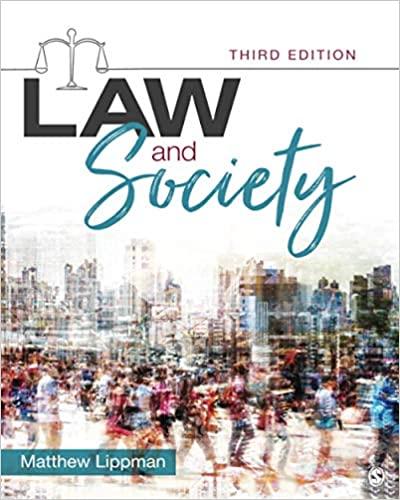Question
1. A franchisor is the person to whom the franchise is granted. a. True b. False 2. When a disclosed principal authorizes an agent's transaction
1. A franchisor is the person to whom the franchise is granted.
a. True
b. False
2. When a disclosed principal authorizes an agent's transaction with a third person, the principal and the third person may each sue the other in the event of a breach of the contract.
a. True
b. False
3. The death of a majority shareholder terminates a corporate enterprise.
a. True
b. False
4. The relationship between the franchisor and the franchisee is ordinarily an arm's-length employment relationship.
a. True
b. False
5. Bankruptcy of only one of the partners does not cause dissolution of the firm.
a. True
b. False
6. If a principal terminates an agency without giving notice of the termination to third persons, the agent may retain the power to make contracts that will bind the principal and third persons.
a. True
b. False
7. The owner of a sole proprietorship pays federal income taxes at the corporate income tax rate, based on the net earnings of the sole proprietorship.
a. True
b. False
8. When a partner executes an agreement outside the limitations of that partner's agreed scope of power, the other partners are always able to set aside the contract.
a. True
b. False
9. If there is a breach of contract, the law requires that the other party terminate the contract and bring a lawsuit.
a. True
b. False
10. A partner must contribute capital to be considered a 'full partner.'
a. True
b. False
11. The normal remedy for breach of contract where the plaintiff has suffered a loss is nominal damages.
a. True
b. False
12. A partner admitted as a partner into an existing partnership has unlimited liability for all obligations of the partnership arising before such admission.
a. True
b. False
13. A corporation must have at least two shareholders.
a. True
b. False
14. The major disadvantage to investors in a corporation is nearly unlimited personal liability.
a. True
b. False
15. The "right to control" test determines whether an individual is an agent, an employee, or an independent contractor.
a. True
b. False
16. Corporations are subject to a form of double taxation.
a. True
b. False
17. The assignee of a partner's interest in the partnership becomes a partner only with the consent of the other partners.
a. True
b. False
18. An LLC may be managed directly by its owners.
a. True
b. False
19. In performing agency duties, the agent must exercise the care that a reasonably prudent person would exercise under the same circumstances.
a. True
b. False
20. The Uniform Durable Power of Attorney Act (UDPAA) changes the general rule that insanity of a principal terminates an agent's authority to act for the principal.
a. True
b. False
Step by Step Solution
There are 3 Steps involved in it
Step: 1

Get Instant Access to Expert-Tailored Solutions
See step-by-step solutions with expert insights and AI powered tools for academic success
Step: 2

Step: 3

Ace Your Homework with AI
Get the answers you need in no time with our AI-driven, step-by-step assistance
Get Started


